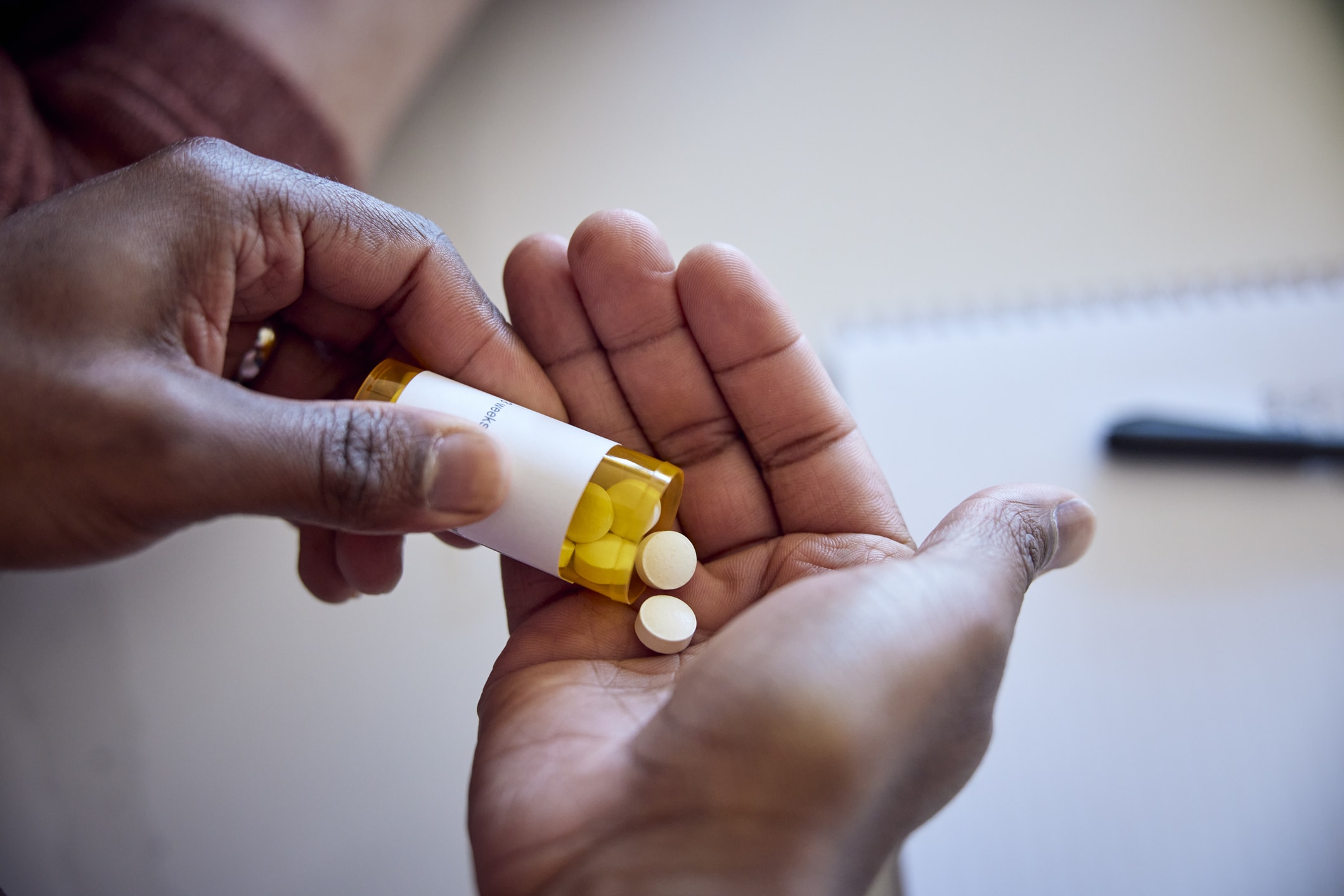
Over-the-counter (OTC) medicines are sold without a prescription and are a staple in most medicine cabinets. If you’re hurting, there’s a drug for that. If you’re stomach is upset, there’s a drug for that. If you’re under the weather, there are also drugs for that.
For most people, they’re safe when used as directed. But some OTC drugs can be misused, cause physical dependence, or produce dangerous effects when taken in high doses — and a few have become surprisingly common sources of addiction and serious harm. Below, we walk through the OTC products that most commonly cause problems, how and why they can be addictive, and practical steps you can take to protect yourself or someone you love.
Why OTC drugs are misused
Believe it or not, many times, misuse or addiction to over-the-counter drugs isn’t the primary goal of the one taking them. Misconceptions (they’re “safe because they’re OTC”) and attempts to self-treat pain, withdrawal, sleep problems, or stress also drive misuse. Accessibility is the main factor — OTC drugs are easy to buy, often affordable, and can fly under the radar of workplace or school drug screens. Finally, the variability of supplements and botanical products means dose and purity are unpredictable, increasing risk.
The Most Addictive Over-the-Counter Drugs on the Market Right Now — What to Know and How to Stay Safe
1. Dextromethorphan (DXM) — the cough syrup high
Dextromethorphan (DXM) is the active ingredient in many cough suppressants (brands and multi-ingredient formulas). At recommended doses it’s safe; at high doses it acts on the brain’s NMDA receptors and can produce dissociative, hallucinogenic and opioid-like effects. Young people in particular sometimes binge cough syrup to chase the “robotripping” high. Repeated heavy use can lead to psychological dependence and dangerous interactions (for example, with antidepressants), and overdoses can cause severe sedation and impaired breathing. Medical reviews and clinical guidance document both the abuse patterns and the need for emergency care in severe overdoses.
NCBI
2. Loperamide (Imodium) — a hidden opioid risk
Loperamide is an antidiarrheal sold as Imodium and similar generics. At normal doses it works in the gut. But in very large quantities some people use it to self-treat opioid withdrawal or to try to get opioid-like effects — behavior that has led to life-threatening heart arrhythmias and deaths. The U.S. Food and Drug Administration and multiple clinical studies have warned that loperamide misuse (very high doses, often taken for long periods) can cause dangerous cardiac problems and should never be used to manage opioid addiction without medical supervision.
PMC
+1
3. Kratom and kratom-derived products — an unregulated pathway to dependence
Kratom (a botanical sold as powders, capsules, gummies and extracts) contains compounds that act on opioid receptors. Users report using kratom for pain relief or to blunt opioid withdrawal, but kratom can cause dependence, withdrawal symptoms, and toxic effects. In recent years regulators have flagged concentrated kratom extracts and semisynthetic derivatives (some marketed as “legal morphine” or highly potent extracts) as particularly dangerous. Because kratom products vary widely in strength and purity and aren’t regulated like medicines, they pose a real addiction and overdose risk.
NIDA
+1
4. Topical nasal decongestant sprays (oxymetazoline, phenylephrine) — rebound dependence
Nasal sprays like oxymetazoline (Afrin®) and older phenylephrine sprays provide quick relief for congestion, but when used more than a few days in a row they can produce “rebound congestion” (rhinitis medicamentosa). People can get trapped in a cycle: use the spray to feel better, then get worse congestion when it wears off, so they use more — effectively creating a physiological dependence on the spray to breathe normally. The result is chronic nasal inflammation that can require medical treatment to break.
NCBI
+1
5. Diphenhydramine and other sedating antihistamines — misuse and tolerance
Diphenhydramine (Benadryl) and several OTC sleep aids are sedating antihistamines. Taken occasionally, they’re useful for allergies or short-term insomnia, but some people take them repeatedly for sleep or to achieve delirium when combined with other substances. Chronic high-dose use can lead to tolerance, cognitive impairment (especially in older adults), and anticholinergic side effects; abrupt cessation after long periods can cause sleep disruption, making users continue the medication. Pharmacists and clinicians report patterns of misuse and recommend caution, especially in the elderly.
6. Caffeine products — legal, common, and physically dependence-forming
Caffeine is widely available OTC (tablets and energy shots) and is the world’s most consumed psychoactive drug. Regular daily use produces tolerance and a well-documented withdrawal syndrome (headache, tiredness, irritability, concentration problems) when intake stops — symptoms that often reinforce continued use. While caffeine dependence is usually less medically destructive than opioid or stimulant addiction, it can still impair sleep, mood, and daily functioning.
NCBI
Other OTCs You Need to Be Careful Around
• Laxatives (stimulant types): You wouldn’t think someone could be addicted to this, but then you’d be wrong. Chronic overuse can cause bowel dependence and electrolyte problems.
• Pseudoephedrine and ephedrine: not classically addictive in the same way as opioids, but can be misused and has stimulant effects; pseudoephedrine is regulated in many places because it can be diverted to make methamphetamine.
• Tianeptine and other “gas-station” designer drugs: not standard OTC medicines, but some unregulated products sold as supplements have opioid-like effects and have caused dependence and overdoses in recent years.
How to Reduce Your Risk of Becoming Addicted
- Follow label directions — many problems start when people exceed recommended doses or duration.
- Talk with your pharmacist or clinician before using OTCs long-term or stacking multiple products (e.g., multiple cold medicines with the same ingredient).
- Watch for early warning signs of dependence: needing higher doses for the same effect, using despite harm, or failing to stop despite wanting to.
- Store safely and monitor quantities at home the same way you would for prescription medicines.
Seek help if you or someone you care about is using OTC medicines to self-manage withdrawal or to chase highs — addiction treatment, primary care, and poison control can all help in different ways.
OTC medicines save lives and ease millions of symptoms every day — but “over-the-counter” isn’t the same as “risk-free.” A handful of OTC products (notably DXM, loperamide, kratom products, certain nasal sprays, and even widely used substances like caffeine and sedating antihistamines) carry real addiction or dependence risks when misused. If you’re concerned about someone’s use, consult a healthcare professional; early conversations and care make a big difference.








